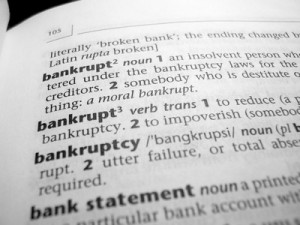 Eligibility for a discharge under Chapter 7 bankruptcy is dependent on several factors. For example, debtors with prior bankruptcy discharges may not be eligible for relief. But the most common factor that prevents a debtor from filing Chapter 7 bankruptcy and receiving a discharge is too much disposable income.
Eligibility for a discharge under Chapter 7 bankruptcy is dependent on several factors. For example, debtors with prior bankruptcy discharges may not be eligible for relief. But the most common factor that prevents a debtor from filing Chapter 7 bankruptcy and receiving a discharge is too much disposable income.
In bankruptcy we use a means test to calculate disposable income. The means test uses the debtor’s income for the last six months to come up with an average. This average is called current monthly income and is the starting point in the means test. If the debtor’s income is higher than the median income for his household size in the region in which he lives, then he will have to complete the remainder of the test. Next, the debtor adds together all of his allowed deductions. These deductions are standard IRS deductions. Once these are added together the total is subtracted from the current monthly income. This number represents the debtor’s disposable income. If the debtor has too much disposable income then he may not qualify for a Chapter 7 discharge.
Sometimes debtors pass the means test at the time of filing but then experience an increase in income before they meet with the trustee. For example, consider a debtor who has been unemployed for the last six months but then gets a job the month after filing Chapter 7 bankruptcy. The new job may or may not create problems for the bankruptcy case. If the debtor would still qualify for a Chapter 7 bankruptcy discharge, even if he had worked at the job for the six months prior to filing, then he will still qualify for a discharge. However, if the debtor has significant disposable income at the time of the 341 meeting then the trustee may file a motion to dismiss the case or ask the debtor to convert their case to Chapter 13.